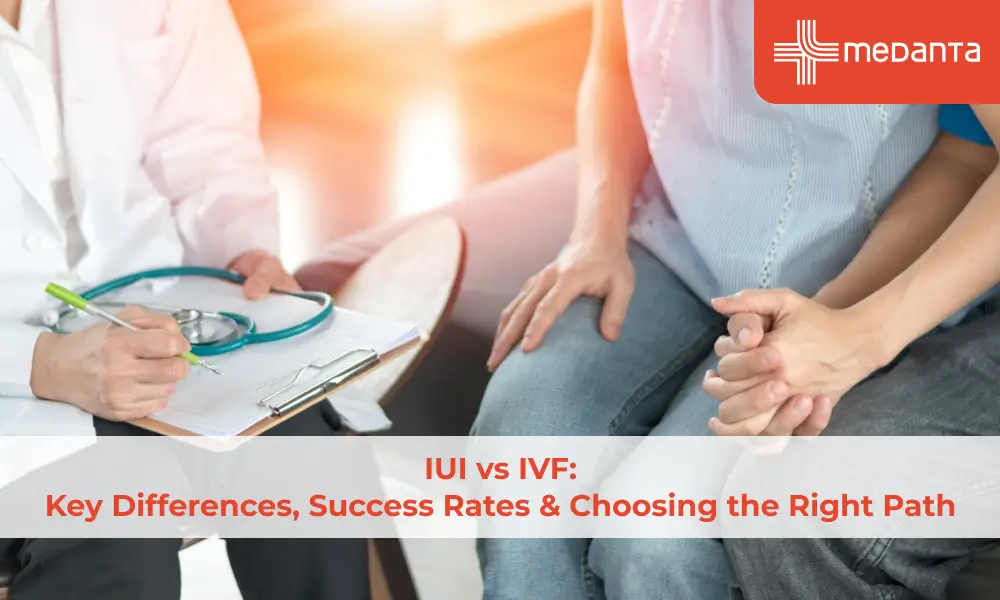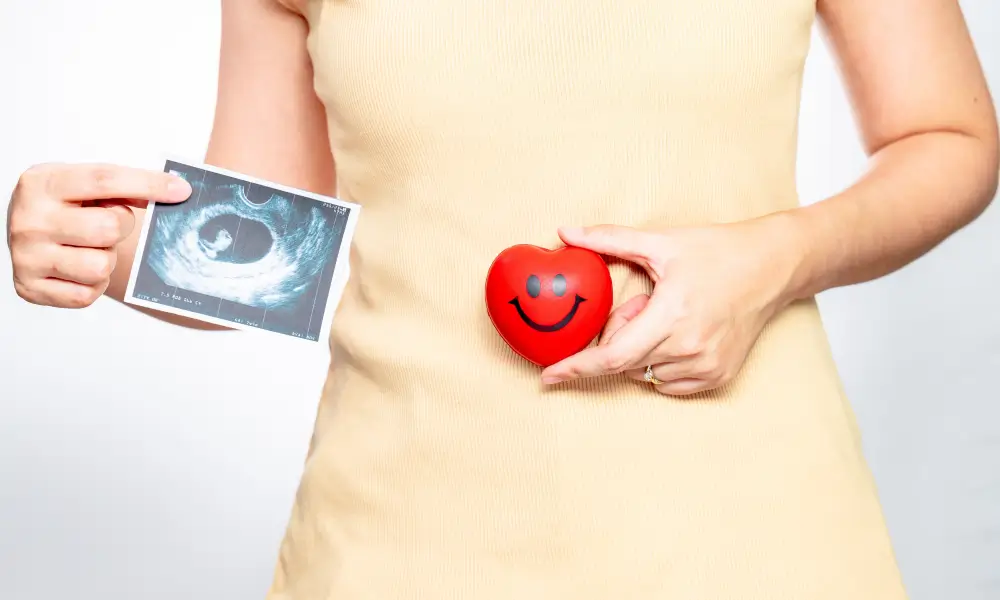IUI vs IVF: Key Differences, Success Rates & Choosing the Right Path

TABLE OF CONTENTS
If you are planning for a baby and are not able to conceive, a lot of confusion and doubt can surround you. If your doctor recommends IUI or IVF this confusion further builds up. The choice between IUI and IVF is a vital decision for you if you are dealing with fertility issues. Success rates tell a clear story - IVF generally offers significantly higher chances of pregnancy compared to IUI. Many couples feel overwhelmed by these findings as they research their options.
In fact, doctors can't explain the cause of infertility in about 30% of couples. This leaves many wondering which treatment path might work best. Money adds another layer to this decision. IUI might be easier on your wallet and body at first, but IVF's higher success rates become more important as you get older.
By the end of this article you will be able to know the main differences between these fertility treatments. It will help you understand which option will suit your situation and priorities.
What Is IUI and How Does It Work?
IUI is a simple fertility treatment that places specially prepared sperm directly into a woman's uterus during ovulation. This procedure, also called artificial insemination, helps sperm skip past the cervix to reach the fallopian tubes, where natural fertilisation happens.
How IUI Works:
Nature allows only 5% of sperm to successfully move from the vagina to the uterus. IUI solves this problem by:
Collecting sperm from the partner or donor
"Washing" the sample to remove seminal fluid and select only healthy, motile sperm
Placing the prepared sperm directly into the uterus with a thin, flexible catheter
The typical IUI process takes about four weeks and matches a normal menstrual cycle. Patients spend just minutes in the actual procedure, which usually causes no pain, though some women might feel mild cramps afterwards.
IUI works best for:
Couples with unexplained infertility
Women with cervical mucus issues
Males with ejaculation difficulties or mild sperm concerns
Same-sex female couples or single women using donor sperm
Cases of semen allergies
The procedure needs perfect timing with ovulation to work well. Many patients take fertility medications first to boost egg development and then get a trigger shot to time ovulation precisely. This careful timing ensures sperm meet the egg at the perfect moment, so pregnancy chances go up.
What Is IVF? A Step-by-Step Overview
IVF involves multiple steps. At first, doctors give you fertility medicines that stimulate your ovaries to produce more eggs. They then use an ultrasound-guided needle to collect these eggs. The lab team fertilises eggs with sperm through regular insemination or by injecting a single sperm into each egg (ICSI). Your embryos will grow for 3-5 days before your embryologist transfers them to your uterus.
Success Rates of IUI vs IVF
According to various doctors, IVF has better success rates than IUI in every age group. If you are a woman under 35 you may have IVF success rates of 50-75% per cycle, while IUI sits at 15-20%. These rates drop as you further age. Women over 40 see about 8% success with IVF and just 4% with IUI.

Which Is Less Invasive: IUI or IVF?
IUI proves nowhere near as invasive as IVF. It places sperm into the uterus without anaesthesia. IVF needs multiple injections, surgical egg retrieval with sedation, and lab work.
When to Start With IUI and When to Move to IVF
Doctors suggest IUI for unexplained infertility or mild male factor issues. Moving straight to IVF makes sense with blocked fallopian tubes, severe male infertility, endometriosis, or after several failed IUI attempts.
Age & Fertility Considerations in Choosing a Treatment
Age affects treatment success a lot. Success rates drop after 35 for both procedures, but IUI sees a steeper decline. Women over 40 might benefit from starting with IVF. By age 43, IVF success falls below 5%, making donor eggs often the best choice.
What to Expect During and After Each Procedure
An IUI takes 5-10 minutes. The doctor uses a thin catheter to place washed sperm in the uterus. Mild cramping might occur afterwards. IVF egg retrieval leaves patients tired and uncomfortable. They need 24 hours of rest. The embryo transfer feels much like a regular pelvic exam.
Conclusion
Couples facing fertility challenges often struggle to choose between IUI and IVF treatments. IUI can become a gentler first step for you which is cheaper and less invasive. Yet IVF gives better success rates for people of all ages. Each couple needs to consider their diagnosis, financial situation, and how ready they feel emotionally.
Your age makes a big difference in this choice. Women below 35 could try a few IUI cycles before moving to IVF. Those close to 40 might want to start with IVF to save time. Some conditions point straight to IVF as the best option - like blocked fallopian tubes or major male fertility issues.
Every couple's path to having a baby looks different. What helps one couple might not work for another. Doctors can guide these tough choices based on your specific situation rather than just looking at numbers.
Both treatments give hope to would-be parents - something that wasn't possible years ago. IUI is all about simplicity while IVF brings an advanced treatment option to the table. The best option depends on your medical needs, emotional health, and your goals for building your family. Success rates matter, but the right treatment is the one that fits your unique case.
FAQs
Should I try IUI first before IVF?
Most couples start with IUI because it costs less and isn't as invasive. Starting with IUI makes sense for younger couples who can't explain their infertility. However, patients might need to go straight to IVF if they have blocked fallopian tubes, severe male infertility, or endometriosis.
Is IUI or IVF more painful?
IUI usually causes little discomfort—just mild cramping like period pain. IVF is all about egg retrieval under sedation which might cause a little more soreness afterwards. The multiple hormone injections in IVF can also make you feel bloated. Neither procedure causes severe pain despite these differences.
How many IUI attempts are common before success?
Doctors typically suggest three IUI cycles before looking at other options. Research shows all but one of the successful pregnancies happen within three attempts. Women above 40 might try just one cycle before switching to IVF.
Does IVF have a higher success rate for women over 35?
Yes. IVF success rates are 40% for women aged 35-37, compared to IUI's 10%. This difference grows even larger after age 40.






